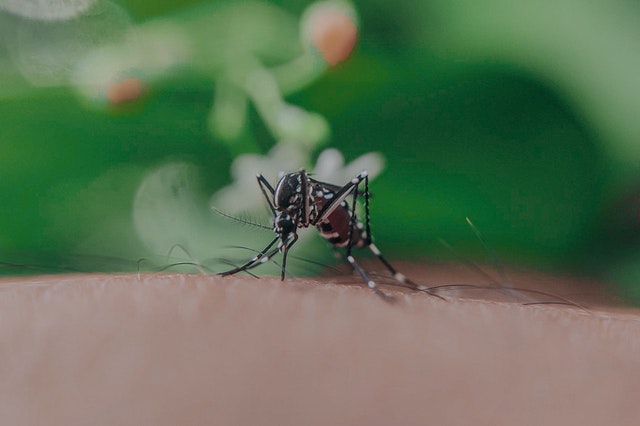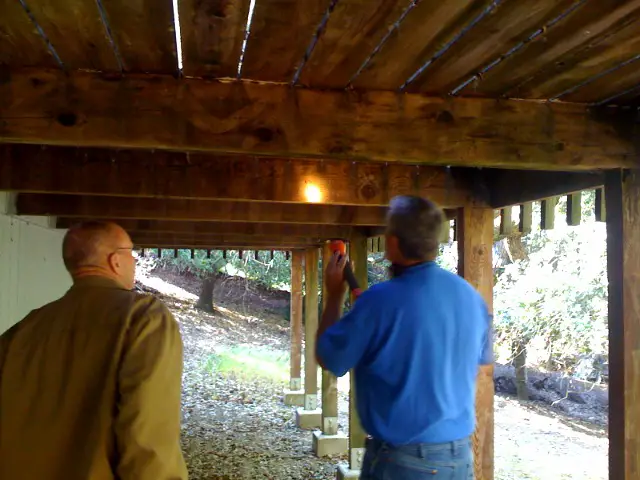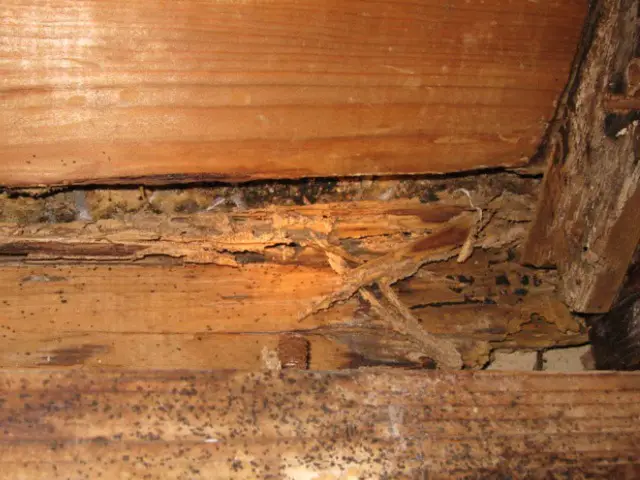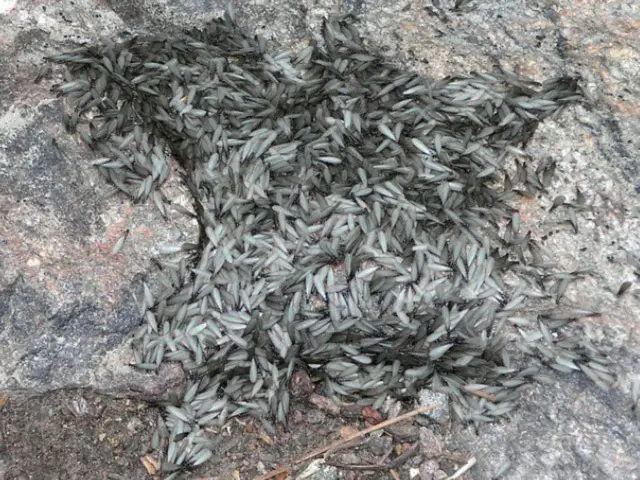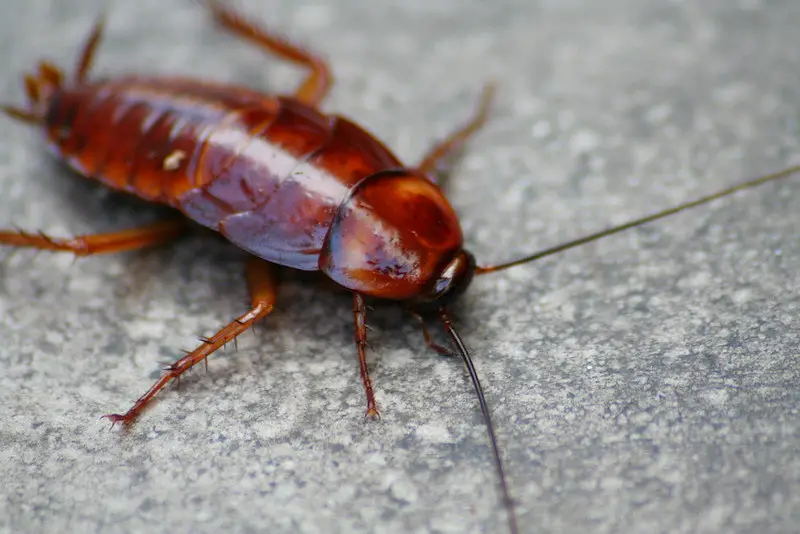Protecting your home from bugs is no small feat. No matter where you live, summertime means one thing bug season. Bugs thrive and breed in the summer, so protecting your house from pests is imperative. Chinch bugs, mosquitoes, spiders, lovebugs, and stink bugs are just a few pests that appear in abundance during the warmer months. But the question is: “How to keep bugs away from your house?”
There are several ways to keep bugs away from your house, but the best way is to spray for pests. You can either buy bug killer from a home improvement store and do your own pest control, or you can call a professional to come and check your home for signs of termites, bugs, and insects and then spray pesticides to remove and deter pests from returning.
How To Keep Bugs Away From Your House?
Setting up traps is an effective way to keep bugs away from your house. Ant traps, rat traps, roach traps, fly traps, and mouse traps can be purchased at any grocery or home improvement store and can be highly effective in killing and removing bugs from your home. If you are the DIY type, you can make your own traps.
Related post:
- How to Kill Gophers with Bleach and Ammonia?
- What Does A Termite Nest Look Like?
- How Long Can Fleas Live Without A Cat?
- How Long Fleas Live Without A Host?
- Do Cats Eat Squirrels?
How to keep bugs away from your home?
The best way to prevent having to remove bugs from your house is to deter them from entering it.
One way to keep bugs away from your house is to eliminate water and food sources. If you make your house less inviting to bugs, you are less likely to deal with a bug infestation.
Keep your kitchen counters and floors clean. Clean up food leftovers and beverage spills. If you store food in containers, bugs won’t be able to get inside. Remove the garbage from your home every day.
Rinse empty bottles, avoid leaving dirty dishes in the sink, fix water leaks, and clean up spills immediately. Never leave water or pet food out overnight.
Block off easy entry points to keep bugs away from your house. If you manage to keep bugs out, you will prevent pests from damaging your property.
Install door sweeps on every door to the outside. Fill caulk cracks around windows, baseboards, and cabinets. Check packaging materials, shipping boxes and grocery bags for bugs before bringing them into your house—repair damaged window screens.
Make your window screens tight-fitting and installed correctly. Don’t leave your garage door open, especially during the night.
Never bring any second-hand items into your house without inspecting them for bugs. Furniture, clothing, and moving boxes can introduce bugs into your home.
What scent keeps bugs away?
The scent of some widely available essential oils keeps bugs away. Some of the most effective bug repellents are peppermint oil, catnip oil, citronella oil, geranium, and eucalyptus oil. According to homeowners, the most effective scents to keep bugs away are a mixture of multiple scents.
Keep Bugs Away From Home
A few ways to keep your home pest-free are as easy as keeping your lights dim outside to deter pests. Also, spray your patio furniture with disinfectant if you eat outside; to ensure there are no drinks or food leftover that may have spilled. Another simple way would be to light citronella candles to keep mosquitoes away. Also, be sure to keep standing water, firewood, and leaf piles away from your home as they all attract bugs.
Not protecting your home from pests in the summer can lead to many problems such as mosquitoes transmitting diseases such as the West Nile virus, termites causing foundation problems to your home, chinch bugs can destroy your grass, and spiders and bees can cause deadly allergic reactions. Therefore, when bees become a nuisance the best option is bee removal.
Everyone wants to enjoy the warm summer weather, so be sure to take all precautions to protect your home from pests this season.
How to keep wasps away from your house?
Most wasps die in the winter and begin to rebuild their colonies in the spring, meaning that you’ll need to keep an eye out for them even earlier than those early summer months! Spray, remove nests, set up traps, whatever you have to do to deter those cranky, stinging creatures from setting up house near your home.
How to keep rodents away from your house?
Voles, moles, gophers, squirrels, woodchucks, you name it.
They are all there to burrow and munch in your yard and on your garden; however, it’s the rats that you mostly have to worry about when it comes to the inside of your house. Rats are the ones who won’t settle for what your garden or your shed has to offer, especially when there’s an attic or a kitchen to explore. So keep an eye out, have plenty of traps (or cats), store your food well, and keep a clean space because, without a cozy place to hide or food to eat, they’ll have to find some new place.
How to keep ants away from your house?
Some of the most common types of ants in Southern California are as follows: carpenter ants, Pharaoh ants, pavement ants, Argentine ants, and red imported fire ants. Even though some of them can sting and some can track bacteria into your home, they are most often thought of as simple nuisances. These creatures are drawn to areas where water and food are readily available, and, especially in the dry summer months, it becomes important to keep your home free of these things. Seal cracks in your foundation and around doors and windows, and make sure to keep shrubs and branches pruned and away from your home.
How to keep mosquitoes away from your house?
There is nothing more annoying than hearing a fly buzzing around your room at night, right? Well, imagine if that little fly could suck your blood! Or give you some sort of virus! Unfortunately, that’s what many people have to worry about in the summer months – mosquitoes. These pests will even lay their eggs around your home if they can find standing water. That’s why it is imperative to keep the surrounding area near your home healthy and dry, your doors closed, and your bug repellent at the ready!
Spiders, flies, bats, ticks, and fleas also make the list, although many of the protective methods are the same. Keep your home clean, dry, and free of available food, seal off easy-access points near doors, windows, and foundations, and be aware. Check your animals for bugs, make sure your window screens don’t have holes and buy some bug repellent candles. Summer is a month full of invasive creatures but remember termite inspection, pest prevention is easier than pest removal.
Should you spray for bugs in a new house?
House hunting is both exciting and stressful. On the one hand, you are searching for a place to truly call home, and, on another, there are a million and one things to consider and think about. As a result, you ask yourself many challenging yet fun questions, such as, “Can I see myself being comfortable here? Is the bathroom big enough? Does the kitchen have enough counter space?”
During the search, it can be easy to forget to ask the not-so-fun questions, though they’re just as necessary. One of the most important is, “Is there a pest problem?” Here are a few ways to identify if your new home has a pest problem and what pest may be the culprit.
Odd Smells
Different pests give off different, distinct odors. For example, rats smell very similar to ammonia, whereas mice smell like must and urine. Some say that bed bugs have a musty and sweet odor, and roaches have an odor similar to feces and soy sauce. When touring a home, it is important to find the source if you notice a strong odor—it might be one of these unwanted houseguests.
Pest Droppings
The most classic and disgusting sign of a pest infestation is pest droppings. However, different pest droppings appear different from one another, so examining the droppings (as gross as it may be) may be beneficial.
Rat droppings are rarely in clusters, as they tend to be dropped while rats are on the move and can be compared visually to a raisin. Mouse droppings resemble a seed and are more commonly seen in clusters. Bat droppings break into a powdery substance containing undigested bugs when crushed and appear similar to black rice grains. While unpleasant, pest droppings are a sure sign that a pest is present, and examining the droppings can tell you what type of pest it is.
Holes
Mice can squeeze their bodies into tiny spaces, so small holes in your potential new home’s walls, floors, or corners can signify that pests are hiding. If holes are found, make sure to check the holes for gnaw marks, as rats love to gnaw on things.
Grease Marks
Rats like to run along walls and, in doing so, can leave dark grease marks along their most common paths. Check the bottom of the walls just before they meet the floorboards; if they appear greasy or like there is a shadow, this is a possible sign of a rat infestation. Droppings and urine trails may also accompany these grease marks.
Just because your dream home has a pest infestation doesn’t mean it can’t still be your dream home.
How to prepare for rodent control services?
You find yourself in the dreaded situation of facing a rodent problem. You’ve seen a mouse or a rat- maybe you’ve even tried to set a trap for it. The first important thing you need to consider is that seeing even one mouse or rat can indicate a whole family of rodents living somewhere in your home. (A rat spotted in the kitchen could mean a nest in the basement. A mouse seen in the crawl space could mean more in the walls.)
Don’t make the rookie mistake of thinking you’ve cleared up the problem if you manage to snag the pesky rodent you saw. Instead, invest in a rodent exterminator- you’ll get a knowledgeable professional with the right tools to know where the rodents will be and how to get them out of your house. Then, contact your local rodent control specialist when you identify the problem.
Pest Control Preparation
Once you have scheduled an appointment with rodent control services, it’s time to prepare your home for their visit. You can take several proactive measures to make their job go smoothly and help the rodent control treatment be as effective as possible.
Rodent Control Prep in the Kitchen
- Store food securely. If it’s not in a jar or can, the food needs to be stored in heavy plastic Tupperware or the fridge. Do this before rodent control services arrive and for two weeks after treatment.
- Check upper and lower cabinets for pantry items such as chips or bread usually stored in bags; this stuff is rodent bait. They can chew right through the plastic bag. Toss it or store it securely.
- Move any items under the sink or on top of the fridge. Rodent control services will need easy access to these areas.
Rat Control Prep in Living Areas
- Sweep, clean, and vacuum the living areas of your home.
- Take out all garbage and keep lids on trash cans.
- Get rid of any unnecessary storage – paper, boxes, bags, etc. Rodents love to nest there.
- Move furniture a few inches away from walls to allow for inspection.
- Check all walls and baseboards for small holes or spaces that don’t seal properly. Fill and repair them.
Rodent Control Prep Safety
- If you have seen a rodent in your home or know you have a rodent infestation, your home is vulnerable to certain health hazards.
- Rodents can carry a whole host of diseases.
- Dispose of rodent feces and urine to keep you and your loved ones safe and healthy. Remove any rodent food sources.
- Thoroughly wash your hands after handling rodent-infested areas and feces.
Make a list of all places where you have seen rodents or signs of them. That way, during the visit from the rodent control services, you’ll be prepared to explain the situation to him or her, showing areas where rodents or signs of rodents have been seen.
These rodent control preparation steps are a general guide to preparing your home for professional treatment. They can also be practiced before you use any over-the-counter pest control solutions yourself. When followed correctly, this guide will help your home effectively remain rodent-free.
